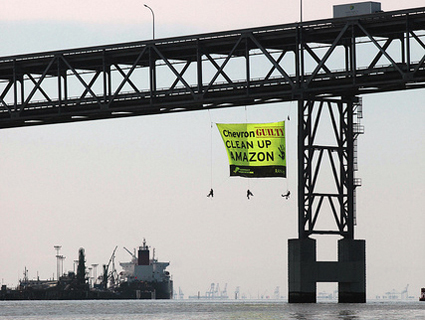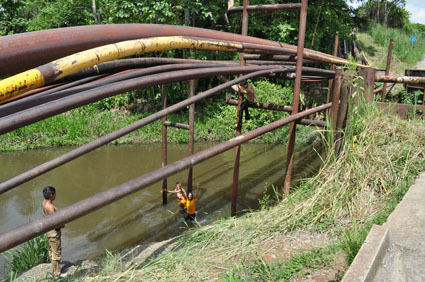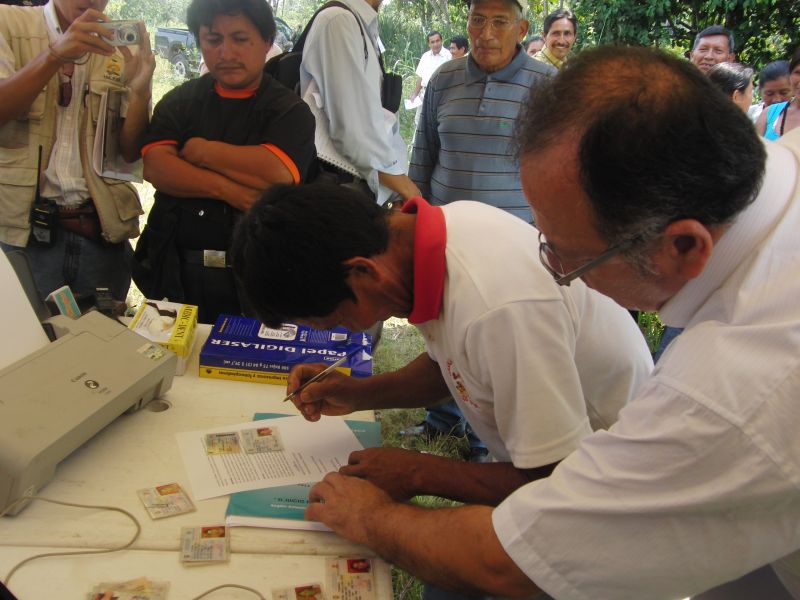In February, an Ecuadorian court ordered the oil company Chevron to compensate indigenous communities for environmental damage caused by oil drilling. The case started in 2003, so the $18.2 billion decision was a long time coming. Now Chevron is trying to block enforcement of the decision, arguing that it was “fraudulent.”
There’s a lot at stake for Chevron, which is why the company is trying so hard to block it. It’s not just about the billions of dollars. It’s also about the precedent the case would set if an oil company is forced to pay for past environmental harms. Now, several new cables that WikiLeaks has released shed additional light on how the company tried to get help from the US Embassy in Ecuador to have the case dismissed over the years. While some cables show that embassy officials seemed willing to help, it’s not clear exactly how much they may have done to intervene on Chevron’s behalf. Still, the cables are pretty interesting.
This from a March 2006 cable written by US officials in Quito:
In previous meetings, Chevron reps have suggested that the [US government] pressure the [Government of Ecuador] to assume responsibility for the environmental damage in the areas once operated by Chevron. Given the complex legal questions and the questions of fact disputed in the case, it does not seem likely that any available inducements would convince the [government of Ecuador] to assume what may amount to billions of dollars of environmental liability.
Another cable from April 2008 also provides insight into Chevron’s attempts to get the government of Ecuador to help them get rid of the case:
Meanwhile, Chevron had begun to quietly explore with senior [government of Ecuador] officials whether it could implement a series of social projects in the concession area in exchange for GOE support for ending the case, but now that the expert has released a huge estimate for alleged damage, it might be hard for the GOE to go that route, even if it has the ability to bring the case to a close.
More cables about Chevron and Ecuador here, here, here, and here.
The plaintiffs in the case argue that the cables raise concerns that the US may have intervened on behalf of Chevron. “Chevron lawyers clearly felt that embassy officials were part of their team,” said Karen Hinton, the spokeswoman for the plaintiffs, in a statement. “We find it disturbing that US embassy officials in Ecuador were willing to do the bidding of an American oil company that committed environmental crimes that have literally decimated the lives of thousands of people.”
UPDATE: Chevron spokesman Justin Higgs sent this statement:
Chevron has indeed had discussions with U.S. Embassy officials and the [United States government] more broadly to secure its support in ensuring that Chevron’s contractual and treaty based-rights in Ecuador are protected. Chevron consistently has communicated with the governments of Ecuador and the U.S. to try both to ensure that Ecuador honors its binding legal and contractual obligations reflected in the settlement and release agreements it entered into after Texaco Petroleum Company fully remediated its share of environmental impacts in Ecuador and to ensure that Chevron’s ability to secure fair and neutral international arbitration is safeguarded.















